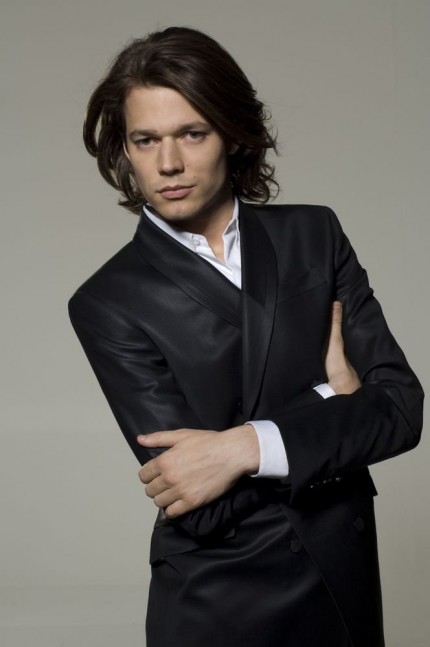Pianist Fray proves most impressive with Beethoven in recital debut

David Fray appears to have all the requirements for a major career. The young French pianist has won several high-profile awards in Europe, and his debut recording (Virgin) of Bach and Boulez showed an intellectual command as well as a sterling technique. His slender film-star looks and being Riccardo Muti’s son-in-law clearly don’t hurt either.
Fray, 30, made his Chicago recital debut Sunday afternoon at Symphony Center in a viande et pomme de terre program of Mozart and Beethoven.
Of the two musical titans that made up the recital, Beethoven came off best. Fray neatly encapsulated the al fresco expression of the Pastorale Sonata (No. 15 in D major). His tempo in the opening movement was more Moderato than the marked Allegro but the unhurried pace conveyed the relaxed, thoughtful feel of the music, the climax firmly pointed but kept in scale.
Fray is not a power pianist, but his silvery tone and lean, tempered strength brought their own rewards. The somber, ominous quality of the Andante was neatly contrasted with the more light-hearted middle section, and Fray firmly pointed the dynamic extremes n the Scherzo. The pianist moved fluently from the easy-going flow of the main theme to a notable burst of bravura at the coda, accentuating the final chords with nervous little jumps off his chair.
His take on the Waldstein sonata was equally impressive. The young Frenchman served up some pretty dazzling prestidigitation in the opening Allegro (“con brio” as marked), and explored the ruminative Adagio middle section — really a de facto introduction to the finale –with burnished concentration.
Fray segued into the Rondo with a magical stealing in of the main theme, building the structure with mounting speed and bravura. If the final burst of virtuosity was something of a blur, Fray’s daunting speed and unbridled intensity made up the balance.
The pianist’s Mozart proved more of a mixed bag. The Sonata in D major, K.311, which led off the afternoon, was boldly projected and graceful. Yet while playing with poised simplicity, Fray failed to bring the kind of limpid poetry of an Uchida to the Andante. In the closing Rondo, Fray’s touch felt heavy, his clipped, slightly staccato style light in charm.
The pianist seemed more in synch with the dramatic Beethovenian expression of Mozart’s late Fantasy in C minor, K.475. Fray here seemed to take an over-Romanticized approach, the interpretation seeming a bit disjointed in places, but for the most part he put across the dark, brooding expression with a refined sensibility.
As encores Fray offered delicately colored excerpts from Schumann’s Kinderszenen and a freely expressive Allemande from Bach’s Partita No. 6 in E minor.
Posted in Performances




